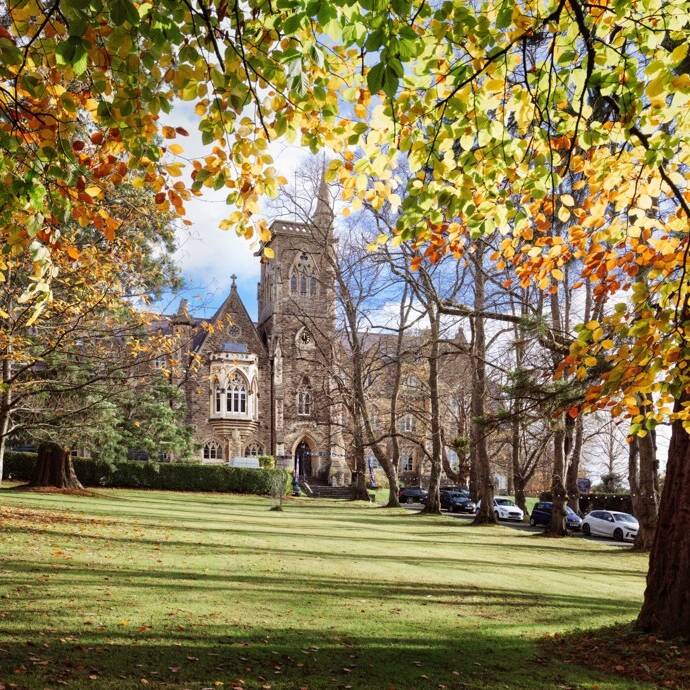International Exploration
Sixth Form, Global Citizens
From 20th to 24th April 2016, the IB students in Year 12 took part in a cultural exchange with IB students from Sven Erikson School in Borås, Sweden. While we were there, we had the opportunity both to practise giving a TOK presentation and to immerse ourselves in learning about a culture that was unfamiliar to us.
Next academic year, all of us will do our formal presentation in Theory of Knowledge, TOK, which is part of the IB Core. We spent two days working in groups of 5-6 people and prepared a 15-20 minute practice presentation together. We first chose a real life situation, such as the current migrant crisis, or the US elections, and then decided what the knowledge question was that should underpin our response to, and consideration of, that situation. In relation to the migrant crisis, we asked “how does language affect the knowledge we gain?” and the knowledge question related to the election campaign was “How can we know what makes a good leader?”
This experience was very useful: in some groups we saw how effective collaboration is, because we all bring different skills and knowledge to a task; in other groups we had to decide how to handle the lack of commitment or effort from other group members; we all learned that we need to note what the mark scheme wants us to do in order to achieve the highest level. After the presentations, we were also given feedback on our presentation skills: the key advice was to avoid reading a script in the real presentation in order to make eye contact and engage the audience.
Some of us felt a little guilty at times during the trip because we knew almost no Swedish, but most people could speak English fluently and were happy to translate for us. We learnt a few basic words along the way: “hej” = hello, “tack” = thank you, “Grattis på födelsedagen” = happy birthday, and a few others from the airport: “utgang” = exit, “bagagevagnar” = trolleys. One interesting word we learned that reflects Swedish culture is “fika”, which means to go out for coffee or a snack with friends in the afternoon. We have this concept too in England, but we don’t have a word for it: instead, we would ask someone if they want to go out for coffee. Language is fascinating!
Before coming to Sweden, we’d heard that it’s one of the happiest countries in the world, and the whole atmosphere while we were there seemed very laid-back. Because Sven Erikson School was an IB school it was also very multicultural, and many of the students spoke more English than Swedish, even though they were living in Sweden. One of the first differences we saw was that in English cities there is a lot of homelessness, whereas in both Borås and Gothenburg there were very few people who were homeless. Lastly, we noticed how spread out all the houses were and learned that the population of the whole of Sweden as a country is about equal to the population of London!
The school we visited, Sven Erikson, is very different from the Royal High: it is much more casual. The whole education system is much less age centred than in England. Here every student has to study in classes in their exact age categories – so Year 7 is 11-12, Year 8 is 12-13 and so on; in Sweden, however, their IB year group had a mixture of ages from 17-20. The students called their teachers by their first names, and the dress code was also very informal. Lastly, many of the students were still unsure (and unworried) about plans for higher education, and the school didn’t put pressure on them to decide – it was up to the student to do the work, which perhaps isn’t the most efficient approach!
Overall, the Swedish Exchange has been one of the highlights of the IB course so far, and I would definitely recommend every IB student to go, both to feel more confident about TOK, and to learn about another culture!

